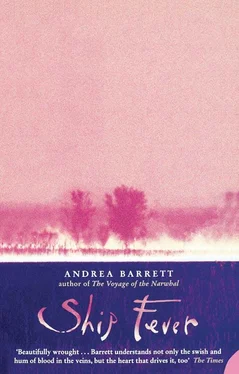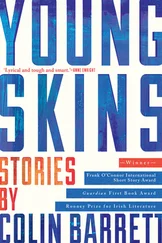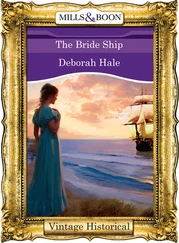1 ...6 7 8 10 11 12 ...58 A group of men had appeared to the left of the fire. Lofling, Forskal, Falck he saw, and also Ternström and Hasselquist. And another, whom he’d forgotten about: Carl Thunberg, his fellow Smalander.
Thunberg was back, then? Thunberg, the last he had heard, was still alive. From Paris Thunberg had gone to Holland. From Holland he had gone to the Cape of Good Hope, and then to Java and finally to Japan. In Japan he had been confined to the tiny island of Deshima, isolated like all the foreigners. So desperate had he been to learn about the Japanese flora that he had picked daily through the fodder the servants brought to feed the swine and cattle. He had begged the Japanese servants to bring him samples from their gardens.
Of all his pupils, Thunberg had been the most faithful about sending letters and herbarium specimens home. He had been scrupulous about spreading his teacher’s methods. “I have met some Japanese doctors,” he’d written. “I have been teaching them botany and Linnaean taxonomy. They welcome your method and sing your praises.” He had also, Linnaeus remembered, introduced into Japan the treatment of syphilis by quicksilver. He had left Japan with crates of specimens; he’d been headed for Ceylon. But here he was, sharp-featured and elegant, leaning on the mantelpiece and trading tales with his predecessors.
“The people are small and dark and suspicious of us,” he was saying. “They find us coarse. But their gardens are magnificent, and they have ways of stunting trees that I have never seen before.”
“In Palestine,” Hasselquist replied; “the land is so dry that the smallest plants send roots down for many feet, searching for buried water.”
“The tropics cannot be described,” Lofling said. “The astonishing fertility, the way the vegetation is layered from the ground to the sky, the epiphytes clumped in the highest branches like lace…”
“Alexandria,” Forskal said. “Everything there is so ancient, so layered with history.”
“My health is broken,” Falck said; and Kahler said, “I walked from Rome almost all the way to Sweden.”
In Lappland, Linnaeus said silently, a gray gnat with striated wings and black legs cruelly tormented me and my most miserable horse. His apostles did not seem to hear him. A very bright and calm day, he said. The great Myrgiolingen was flying in the marshes.
“We’ll go home now, Papa,” the tall woman said. “We’ll put you to bed. Won’t you like that?”
Her face was as radiant as a star. What was her name? Beside her, his apostles held leaves and twigs and scraps of blossoms, all new and named by them with their teacher’s advice. They were trading these among themselves. A leaf from a new succulent for a spray from a never-seen orchid. Two fronds of a miniature fern for a twig from a dwarf evergreen. They were so excited that their voices were rising; they might have been playing cards, laying down plants for bets instead of gold. But the woman and the other pupil didn’t seem to notice them. The woman and the other pupil were wholly focused on helping Pehr the coachman push the sleigh back outside.
The woman opened the doors and held them. Pehr and the pupil pushed and pulled. The crisp, winy air of the afternoon had turned dank and raw, and a light rain was turning the snow to slush. Linnaeus said nothing, but he turned and gazed over his shoulder. The group gathered by the fireplace stepped back, displeased, when Pehr returned and doused the fire. Thunberg looked at Linnaeus and raised an eyebrow. Linnaeus nodded.
In the hands of his lost ones were the plants he had named for them: Artedia, an umbelliferous plant, and Osbeckia, tall and handsome; Loeflingia, a small plant from Spain; Thunbergia with its black eye centered in yellow petals, and the tropical Ternstroemia. There were more, he couldn’t remember them all. He’d named thousands of plants in his life.
Outside, the woman and the pupil separated. Sophia? Sophia, my favorite. Sophia bundled herself into the borrowed sleigh in which she’d arrived; the pupil wedged himself into Pehr’s sleigh, next to Linnaeus. In the dark damp air they formed a line that could hardly be seen: Pehr’s sleigh, and then Sophia’s, and behind them, following the cunning signal Linnaeus had given, the last sleigh filled with his apostles. Pehr huddled into his coat and gave the signal to depart. It was late and he was weary. To their left, the rain and melting snow had turned the low field into a lake. Linnaeus looked up at his pupil— Rotheram? Of course it was him: the English pupil, the last one, the one who would survive him —and tried to say, “The death of many whom I have induced to travel has turned my hair gray, and what have I gained? A few dried plants, accompanied by great anxiety, unrest, and care.”
Rotheram said, “Rest your head on my arm. We will be home before you know it.”
When they met, fifteen years ago, Jonathan had a job teaching botany at a small college near Albany, and Ruby was teaching invertebrate zoology at a college in the Berkshires. Both of them, along with an ornithologist, an ichthyologist, and an oceanographer, had agreed to spend three weeks of their summer break at a marine biology research station on an island off the New Hampshire coast. They had spouses, children, mortgages, bills; they went, they later told each other, because the pay was too good to refuse. Two-thirds of the way through the course, they agreed that the pay was not enough.
How they reached that first agreement is a story they’ve repeated to each other again and again and told, separately, to their closest friends. Ruby thinks they had this conversation on the second Friday of the course, after Frank Kenary’s slide show on the abyssal fish and before Carol Dagliesh’s lecture on the courting behavior of herring gulls. Jonathan maintains that they had it earlier — that Wednesday, maybe, when they were still recovering from Gunnar Erickson’s trawling expedition. The days before they became so aware of each other have blurred in their minds, but they agree that their first real conversation took place on the afternoon devoted to the littoral zone.
The tide was all the way out. The students were clumped on the rocky, pitted apron between the water and the ledges, peering into the tidal pools and listing the species they found. Gunnar was in the equipment room, repairing one of the sampling claws. Frank was setting up dissections in the tiny lab; Carol had gone back to the mainland on the supply boat, hoping to replace the camera one of the students had dropped. And so the two of them, Jonathan and Ruby, were left alone for a little while.
They both remember the granite ledge where they sat, and the raucous quarrels of the nesting gulls. They agree that Ruby was scratching furiously at her calves and that Jonathan said, “Take it easy, okay? You’ll draw blood.”
Her calves were slim and tan, Jonathan remembers. Covered with blotches and scrapes.
I folded my fingers, Ruby remembers. Then I blushed. My throat felt sunburned.
Ruby said, “I know, it’s so embarrassing. But all this salt on my poison ivy — God, what I wouldn’t give for a bath! They never told me there wouldn’t be any water here…”
Jonathan gestured at the ocean surrounding them and then they started laughing. Hysteria, they have told each other since. They were so tired by then, twelve days into the course, and so dirty and overworked and strained by pretending to the students that these things didn’t matter, that neither of them could understand that they were also lonely. Their shared laughter felt like pure relief.
Читать дальше
Конец ознакомительного отрывка
Купить книгу












